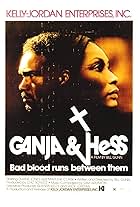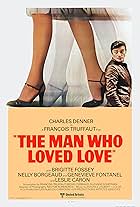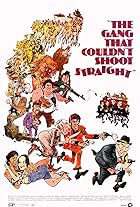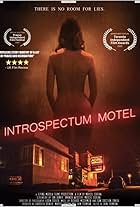In this unreleased film, Michael and Lee Berger are an unhappily married couple looking to rekindle their marriage. After moving to Puerto Rico to live in his brother's house that Michael in... Read allIn this unreleased film, Michael and Lee Berger are an unhappily married couple looking to rekindle their marriage. After moving to Puerto Rico to live in his brother's house that Michael inherited after a murder-suicide, they decide to try swinging - with disastrous results.In this unreleased film, Michael and Lee Berger are an unhappily married couple looking to rekindle their marriage. After moving to Puerto Rico to live in his brother's house that Michael inherited after a murder-suicide, they decide to try swinging - with disastrous results.
- Michael
- (as Edward Bell)
- Ellen
- (as Anna Marie Aries)
- Man in the Cemetery
- (as Charlie Gibbs)
- Director
- Writer
- All cast & crew
- Production, box office & more at IMDbPro
Storyline
Did you know
- Trivia"Stop" was unreleased but had screenings at museums and film societies until 2020.
"Stop" is an ambitious but unsuccessful dissection of empty people in an arid marriage. X-rated feature was permanently shelved by Warner Brothers in 1970 and is reviewed here for the record.
It's easy to see why WB rejected this uncommercial effort. Obscure narrative is tedious to the point of an audience almost sharing the suicidal tendncies of the unsympathetic protagonists. Film nonetheless has several sharp scenes and would be of retrospective interest to European film festival programmers.
Writer-director Bill Gunn, who died last year, made a noteworthy breakthrough here as a black helmer not restricted to a black-themed picture. (Only Sidney Poitier's "Hanky Panky" vehicle for Gene Wilder and Gilda Radner, Michael Schultz' "Sgt. Pepper's" or Asian American director Wayne Wang's nonethnic "Slamdance" since have escaped that sort of typecasting.) Opening scene, reminiscent of the classic breakfast sequence in Orson Welles' "Citizen Kane", establishes whitebread, yuppie couple Edward Bell (a writer-translator) and Linda Marsh already at the end of their tether, barely able to talk to each other without sarcasm. They fly to San Juan, Puerto Rico, to take up residence at an inherited mansion, Bell's brother having just murdered his wife and committed suicide.
With Bell haunted by nightmarish fantasy memories of that incident (he obviously wasn't present but imagines the details), the film immediately suggests potential as a gothic horror pic, like Gunn's well-regarded next feature "Ganja and Hess". Since the film's structure and subplot suggest WB's Stanley Kubrick adaptation of "The Shining" a decade hence (writer in a remote hotel going crazy), that's a missed opportunity.
Instead, "Stop" disintegrates into a series of '60s semi-obligatory lyrical interludes. Always artfully photographed, these sequences of sex, brooding or just wandering are dullsville.
First half of the picture degenerates into the then-hot topic of spouse swapping (e.g., "Bob and Carol and Ted and Alice", "All the Loving Couples") when old pal Richard Dow (named Richard Matheson in the script as an apparent in-joke) pops up with his beautiful black wife Marlene Clark.
Sex scenes are rather tame (no full nudity), but a homosexual tryst plus strong language probably earned the X tag. Low point here is a gauche dinner party scene using a Screw Magazine story on masturbatiion as the starting point for a vulgar discussion.
Gunn's best footage is a stark confrontation between Marsh and a Puerto Rican prostitute (Vicky Hernandez in the pic's best performance) after she catches Bell in bed with the working girl. Another set piece has a camera mounted overhead in the bedroom from a God-like point-of-view to record a take of Bell and Marsh screaming at each other and almost coming to blows. It lasts a couple minutes but is too shrill to be effective.
Heroine Marsh, who looks somewhat like Gayle Hunnicutt and Barbara Harris, played Ophelia to Richard Burton's "Hamlet" in WB's 1964 Electronovision feature, but has little characterization to chew on here. Bell is a blank. When the two are locked together in a "No Exit" finale, the viewer still doesn't know what makes them tick.
Gunn reportedly was unhappy with the studio's final version of the film. A cryptic penultimate scene and heavy use of voice-over exposition indicate some post-production second thoughts.
For a color-blind feature, it is perhaps not surprising that the one black role, played by Marlene Clark (later to star in "Ganja and Hess"), is presented as merely an exotic, erotic cipher rather than given an independent voice.
Pic notably represents the first feature for Owen Roizman, soon to lense William Friedkin's "The French Connection" and "The Exorcist". Roizman's compositions are unusual as is Fred Myrow's eclectic musical score, featuring guitarwork by Ry Cooder.
- How long is Stop!?Powered by Alexa
Details
Contribute to this page

























